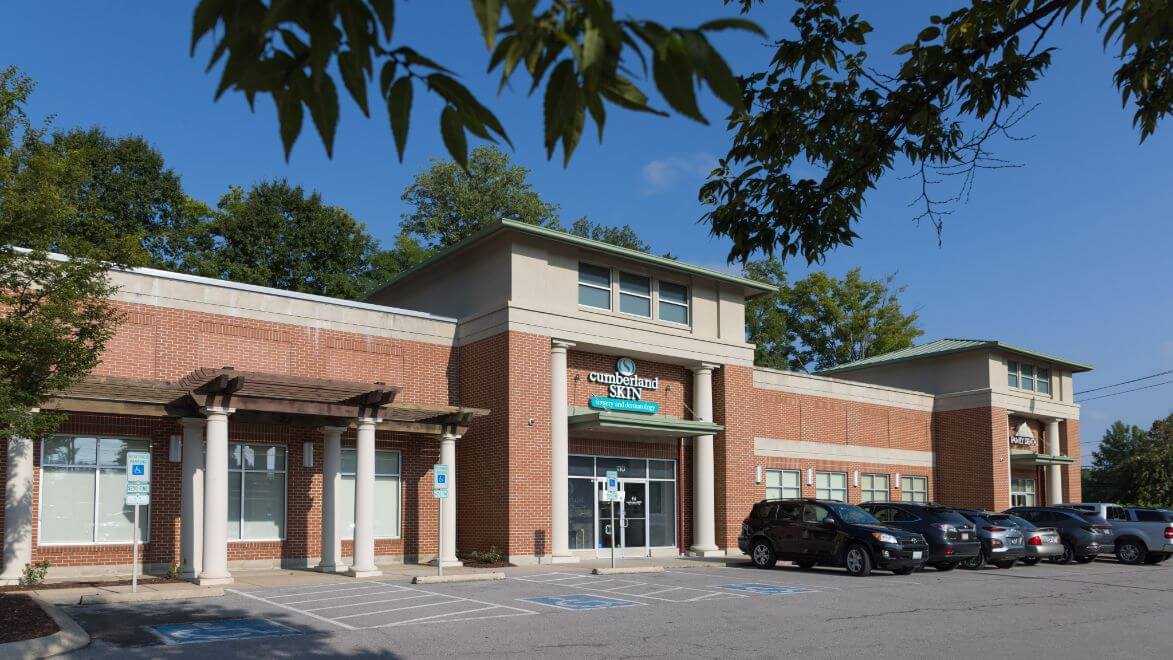Acne
Understanding Acne: A Common Skin Condition Affecting Millions
Acne is a prevalent skin disease that primarily affects adolescents but can also impact adults of all ages. It is estimated that over 650 million people worldwide suffer from acne, making it the most widespread skin condition globally. Acne occurs when the skin’s natural oils (sebum) combine with dead skin cells to clog hair follicles and pores. This blockage creates an ideal environment for bacteria, leading to inflammation and the formation of pimples, whiteheads, blackheads, and other acne symptoms. Acne does not discriminate; it affects men and women of all races and ages.
How Acne Develops: The Science Behind the Skin Condition
- Clogged Pores: Acne begins with the clogging of pores. Dead skin cells and sebum accumulate, creating a blockage in hair follicles.
- Bacterial Growth: The clogged pores trap bacteria, particularly Propionibacterium acnes, which thrives in the anaerobic environment, leading to infection and inflammation.
- Inflammation and Breakouts: The body’s immune response to the bacterial infection results in redness, swelling, and the formation of various types of acne lesions, such as pimples, pustules, nodules, and cysts.
Who Is Affected by Acne?
While acne is most commonly associated with teenagers due to hormonal changes during puberty, it is not exclusive to this age group. Adults in their 20s, 30s, 40s, and even 50s can experience acne. Hormonal fluctuations, stress, diet, and certain medications can all contribute to acne in adults. Additionally, genetic factors play a significant role, meaning that if your parents had acne, you are more likely to develop it as well.
Examples of Acne
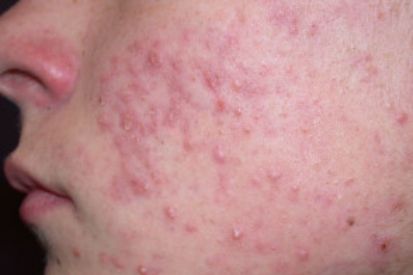
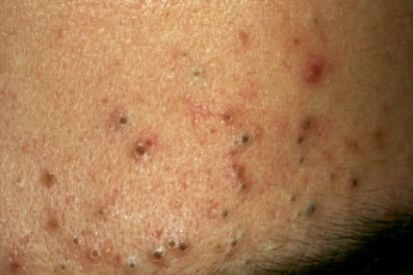
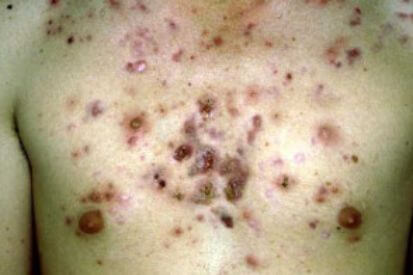
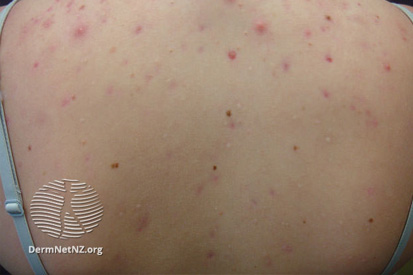
Comprehensive Acne Treatment at Cumberland Skin
At Cumberland Skin, we understand that acne can be a distressing condition that affects your confidence and overall well-being, regardless of your age. Our team of experienced dermatologists is dedicated to providing personalized care to help you achieve clear and healthy skin.
Customized Treatment Plans for Every Age
Adolescents: Teenage acne often requires treatments that target excess oil production and bacteria. Our dermatologists may recommend topical treatments, such as benzoyl peroxide or salicylic acid, and oral medications if necessary.
Young Adults: For adults in their 20s and 30s, acne may be influenced by hormonal changes or lifestyle factors. We offer hormone therapy options and advanced treatments like laser therapy and chemical peels to address persistent acne.
Mature Adults: Acne in older adults can be particularly challenging and may require a different approach. We focus on gentle yet effective treatments that consider the skin’s aging process, such as retinoids and anti-inflammatory medications.
What are the Symptoms of Acne?
Before you can understand how to get rid of acne, it’s important to know the symptoms and how they may appear. Acne can range from mild blemishes to more severe, painful lesions, and it often affects not just the face but other areas of the body as well.
Common acne symptoms include:
- Pimples, blackheads, and whiteheads
- Red, inflamed bumps (papules)
- Pus-filled lesions (pustules)
- Large, firm nodules under the skin
- Painful cysts that may leave scars
- Breakouts on the face, neck, chest, back, shoulders, upper arms, or buttocks
What Causes Acne?
Acne develops when oil, dead skin cells, and bacteria build up in the pores, leading to inflammation and breakouts. Hormonal fluctuations are one of the most common triggers, especially during puberty, menstruation, and pregnancy, when hormone levels can increase oil production. Bacterial infection within clogged pores further aggravates the skin, creating redness, swelling, and sometimes painful lesions.
Other factors can exacerbate acne, including an unhealthy diet, certain medications, and stress. While stress doesn’t directly cause acne, it can trigger flare-ups and slow skin healing. Recognizing these influences is crucial for selecting the appropriate treatment and prevention plan.
- Hormonal Fluctuations: Hormonal changes, especially during puberty, menstruation, and pregnancy, can stimulate acne.
- Bacterial Infection: When hair follicles become clogged with excess oil and dead skin cells, bacteria multiply, triggering inflammation.
- Diet: Some studies suggest that certain foods may influence acne development.
- Medications: Certain medications can contribute to acne development.
- Stress: Stress doesn't directly cause acne, but it can exacerbate existing conditions.
How to Prevent Acne
Preventing acne starts with simple, consistent habits that support healthy skin. By following a daily routine and making mindful lifestyle choices, you can reduce breakouts and maintain clearer skin over time.
Key acne prevention strategies include:
- Cleansing your face twice daily with a gentle, non-comedogenic cleanser
- Moisturizing with an oil-free, non-comedogenic product
- Staying hydrated and maintaining a balanced diet
- Avoiding touching your face to reduce bacterial transfer
- Seeking personalized guidance from a dermatologist for persistent issues
Working with an expert at Pinnacle Dermatology can help you establish a foundation for lifelong skin health and create a routine tailored to your unique skin needs.
Acne FAQs
Over-the-counter acne products typically contain ingredients like benzoyl peroxide, salicylic acid, or alpha hydroxy acids. These products can be effective for mild acne. Prescription treatments, on the other hand, may include stronger formulations of these ingredients or other medications such as topical or oral antibiotics, retinoids, or hormonal therapies. Your dermatologist can assess the severity of the acne and recommend the most appropriate treatment plan.
The timeline for acne improvement can vary depending on the severity of the acne, the chosen treatment, and individual factors. Over-the-counter products may show initial results in a few weeks, while prescription medications, such as topical retinoids or oral antibiotics, may take several weeks to a few months.
Acne is a common skin condition that affects people of all ages, genders, and ethnicities. It is most commonly associated with adolescence due to hormonal changes during puberty, but acne can persist or develop in adults as well.
Acne is a treatable condition. Consulting with your dermatologist can help determine the most appropriate treatment plan.
Dermatologists tailor acne treatments based on the individual's skin type and the severity of the condition. Common treatments include topical medications like retinoids and benzoyl peroxide, oral antibiotics, and, in some cases, oral contraceptives or isotretinoin. Light and laser therapies may also be recommended.
Start Your Journey to Healthy Skin with Cumberland Skin
No matter your age or the severity of your acne, Cumberland Skin is here to help. We believe that everyone deserves to feel confident in their skin. Our team is committed to providing expert care, from the initial consultation to the development of a unique treatment plan tailored to your specific needs.
Why Choose Cumberland Skin?
Expert Dermatologists: Our team includes board-certified dermatologists with extensive experience in treating acne and other skin conditions.
Personalized Care: We understand that each patient’s skin is unique, and we customize our treatment plans to meet your specific needs and goals.
Advanced Treatments: We offer the latest in dermatological treatments, including topical and oral medications, light and laser therapies, and chemical peels.
Comprehensive Support: Our care doesn’t stop at the clinic. We provide ongoing support and follow-up appointments to ensure your treatment plan is effective and adjusted as needed.
If you are struggling with acne, whether at 13, 23, or 53, don’t hesitate to seek professional help. Schedule an appointment with a trusted Cumberland Skin provider today, and take the first step on your journey to achieving clear, healthy skin. Your skin is our priority, and we are here to help you every step of the way.
From Our QualDerm Family of Brands: Acne Treatment Options
How to Treat Acne
Effective acne care isn’t one-size-fits-all. At Pinnacle Dermatology, our specialists create personalized plans that may include topical creams and gels, oral antibiotics, hormonal therapy, or retinoids for more severe cases. Each treatment is designed to reduce breakouts and target the underlying causes of acne.
Our dermatologists take the time to identify what’s driving your acne and build a treatment strategy that works for you. Whether you’re dealing with occasional flare-ups or chronic, severe acne, we’re here to help you achieve clearer, healthier skin. Schedule your appointment with Pinnacle Dermatology today and take the first step toward lasting results and renewed confidence.
Related Blog Posts

- General Dermatology
- Skin Care
- Chronic Skin Conditions
Hormonal acne can be a pesky skin problem for many. The only way to address this is by finding a hormonal acne treatment that works for you and your unique skin.
Read More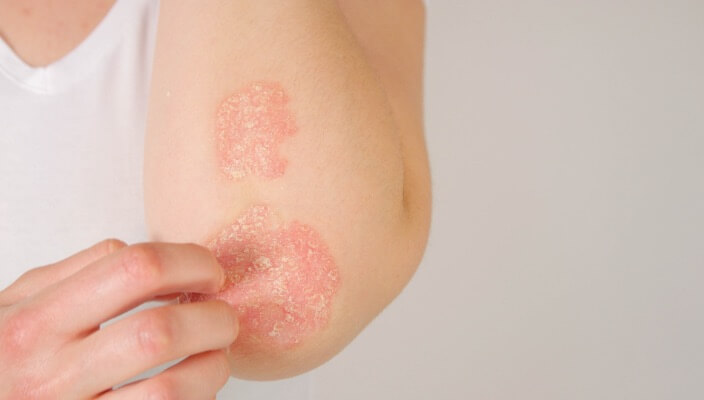
- General Dermatology
- Chronic Skin Conditions
Learn the differences between dry skin, eczema, and psoriasis, their distinct characteristics, and potential triggers. Gain valuable insights into identifying symptoms and seeking appropriate treatment to effectively managing these common skin conditions.
Read More
- Skin Care
- Cosmetic Treatments
Discover how Platelet-Rich Plasma (PRP) can treat acne scars by boosting natural healing and improving skin texture. Learn about the process and what to expect in this blog.
Read MoreFeatured Products
Check your local office for current stock!
Check your local office for current stock!


